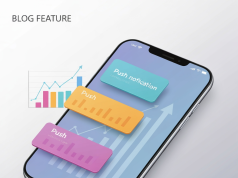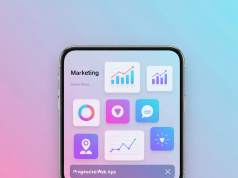With the advancement of technology, stock market trading has become more accessible than ever. Today, simply clicking ‘buy’ on your keyboard can make all kinds of stocks yours. It’s an oversaturated market, though, so which app is best for you?
They are supposed to introduce you to some of the best stock market trading apps in this blog. Insiders, we’ll give you information that helps make your decision stress-free, as well as some guidelines on which app is right for your needs, whether beginner, or expert trader, or in between. Let’s get into it.
Robinhood – Best for Beginners
Overview: Robinhood is one of the most popular stock trading apps, especially for beginners. It offers commission-free trading, meaning you can buy and sell stocks without paying any fees. This has made it a favorite for people just starting in the stock market.
Why it’s good:
- Commission-free trading: Robinhood doesn’t charge fees on stocks, ETFs, options, or cryptocurrency trades.
- Easy to use: The app has a simple, user-friendly interface, which makes it easy to navigate for new traders.
- Fractional shares: Robinhood allows you to buy fractional shares, meaning you don’t have to buy a whole share of expensive stocks like Amazon or Tesla. This is great for beginners with limited funds.
- No account minimums: You can start trading with any amount of money, which is ideal for beginners who may only want to invest small amounts.
Drawbacks:
- Limited research tools: Robinhood is great for beginners, but it doesn’t offer advanced research tools or educational resources, which might be a problem for more experienced traders.
- Customer service: Some users have reported poor customer service experiences, which can be frustrating if you need help quickly.
Best for:
Beginners looking for a simple and cost-effective way to trade stocks.
TD Ameritrade – Best for Research Tools

Overview: TD Ameritrade is one of the largest stock trading platforms in the world. It’s known for its wide range of investment options and advanced research tools. It’s great for both beginners and experienced traders.
Why it’s good:
- Extensive research tools: TD Ameritrade provides a wealth of research tools, including detailed stock analysis, charts, and market reports. This is ideal for traders who want to make informed decisions.
- Comprehensive educational resources: The app has plenty of tutorials, articles, and videos to help you learn about trading. It’s perfect for both new and experienced investors.
- Commission-free trading: Like Robinhood, TD Ameritrade also offers commission-free trades on stocks and ETFs.
- Wide range of investment options: You can trade stocks, bonds, mutual funds, ETFs, options, and even futures.
Drawbacks:
Complexity for beginners: With all its tools and options, TD Ameritrade may feel overwhelming for beginners. It can take time to learn how to use all the features.
Account minimums: Although there’s no minimum to open a standard brokerage account, some features, like margin trading, require higher account balances.
Best for:
Traders who want access to powerful research tools and a wide range of investment options.
E-TRADE – Best for Active Traders
Overview: ETRADE is another well-known platform that’s been around for years. It’s perfect for active traders who need fast execution and a wide range of trading options. ETRADE offers a combination of ease of use and advanced tools.
Why it’s good:
- Powerful trading tools: ETRADE offers a wide variety of trading tools that help active traders make quick decisions. These tools include customizable charting, technical analysis, and real-time market data.
- Commission-free trading: Just like Robinhood and TD Ameritrade, E*TRADE offers commission-free trades for stocks and ETFs.
- Mobile app: The E*TRADE mobile app is well-designed and allows for fast and easy trades on the go.
- Wide selection of assets: In addition to stocks and ETFs, E*TRADE allows you to trade options, mutual funds, bonds, and futures
Drawbacks:
- Fees for some services: While trading stocks and ETFs is commission-free, E*TRADE charges fees for certain services like broker-assisted trades and margin trading.
- Complex for beginners: The many features and tools on E-TRADE may be a bit overwhelming for someone who’s just starting out.
Best for:
Active traders who need advanced tools and a reliable platform for quick, frequent trades.
Fidelity – Best for Long-Term Investors

Overview: Fidelity is one of the most respected names in the investment world. The app is known for offering solid research tools, low fees, and excellent customer service. It’s an excellent choice for long-term investors who are focused on retirement planning or building wealth over time.
Why it’s good:
- Low fees: Fidelity offers commission-free trading for stocks, ETFs, and options. It also has some of the lowest fees for mutual funds.
- Retirement accounts: Fidelity is one of the best platforms for retirement investing, offering a wide range of retirement accounts like IRAs and 401(k) rollovers.
- Research tools: Fidelity’s research tools are top-notch, with access to expert analysis, market reports, and educational content.
- No account minimums: You can start investing with any amount of money, which is great for beginners and those just getting started with retirement savings.
Drawbacks:
- Limited options for active traders: If you’re a very active trader, you may find Fidelity’s tools not as advanced or real-time as other platforms like E*TRADE or TD Ameritrade.
- Customer service wait times: Although Fidelity’s customer service is generally reliable, there have been some reports of long wait times during peak periods.
Best for:
Long-term investors who are focused on retirement or wealth-building and want a trustworthy platform.
Webull – Best for Advanced Traders
Overview: Webull is a stock trading app that has gained popularity due to its advanced trading tools and zero-commission structure. It’s designed for more experienced traders who want in-depth analysis and the ability to trade various asset classes.
Why it’s good:
- Advanced charting tools: Webull offers powerful charting and technical analysis tools that are perfect for traders who like to make decisions based on market data and trends.
- Commission-free trading: Webull offers commission-free trading for stocks, ETFs, and options, which is a big advantage for traders looking to minimize costs.
- Extended hours trading: Unlike many other platforms, Webull allows you to trade outside of regular market hours, which is ideal for those who need flexibility.
- Paper trading: Webull offers a paper trading feature, allowing you to practice trading without using real money.
Drawbacks:
- Complex interface: Webull’s interface is more complex than other apps, which can be overwhelming for beginners.
- Limited educational resources: Although Webull offers a lot of advanced tools, it doesn’t have as many educational resources for new traders.
Best for:
Advanced traders who need powerful tools and want the ability to trade outside of regular market hours.
How to Choose the Best App for Market Trading
Choosing the right app for market trading is a crucial decision that directly impacts your success, confidence, and overall trading experience. With hundreds of platforms available, selecting the best one can feel overwhelming. The key is to align your choice with your experience level, financial goals, and trading style.
If you’re new to stock market trading, simplicity should be your top priority. Beginner-friendly apps offer clean interfaces, learning resources, easy navigation, and minimal fees. On the other hand, experienced traders often look for advanced features like real-time analytics, charting tools, extended market hours, and fast execution speeds.
Similarly, long-term investors focused on share market investment may prefer apps that support retirement accounts, dividend reinvestment, research reports, and portfolio tracking.
Key Factors to Consider When Choosing a Trading App:
- Ease of Use: A simple interface ensures smooth trading, especially for beginners.
- Fees & Commission: Zero or low trading fees maximize profits.
- Research & Tools: Market data, charts, news, and technical indicators help improve decisions.
- Security: Two-factor authentication, encryption, and regulatory compliance ensure safety.
- Customer Support: Reliable assistance builds confidence.
- Mobile Experience: A responsive mobile app ensures flexibility and convenience.
Choosing wisely allows traders to minimize risks, improve efficiency, and grow investment knowledge faster. Just as developers aim to successfully market your Shopify app, traders should aim to select platforms that effectively support their trading goals. For Android users, following an android market easy guide approach helps simplify the onboarding process and improve early success rates.
Quick Comparison : Choosing the Right Trading App
| User Type | Best App Choice | Key Features |
|---|---|---|
| Beginners | Robinhood | Easy interface, no fees, fractional shares |
| Active Traders | E-TRADE | Advanced tools, fast execution |
| Research-Oriented | TD Ameritrade | Market research, analytics, tutorials |
| Long-Term Investors | Fidelity | Retirement accounts, low fees |
| Advanced Traders | Webull | Technical charts, extended hours |
By understanding these differences, traders can confidently pick the platform that aligns best with their goals.
Smart Strategies for Successful Market Trading

Success in market trading doesn’t depend solely on selecting the best app—it also requires discipline, learning, and consistent strategy. Whether you are focused on stock market trading or long-term share market investment, smart trading habits help reduce risk and increase profitability.
One of the most effective approaches is continuous learning. Understanding market trends, financial news, technical analysis, and economic indicators empowers traders to make informed decisions. Using tools provided within trading apps—such as charts, indicators, and news feeds—helps traders analyze price movements more accurately.
Risk management is another essential factor. No matter how skilled a trader becomes, losses are inevitable. Smart traders control risk by diversifying investments, setting stop-loss limits, and avoiding emotional decision-making.
Proven Trading Strategies for Beginners and Experts:
- Start Small: Invest small amounts until confidence and experience grow.
- Diversify Holdings: Spread funds across multiple stocks and sectors.
- Use Stop-Loss Orders: Protect capital from heavy losses.
- Follow Market Trends: Trade in alignment with overall market movement.
- Practice with Paper Trading: Test strategies before risking real money.
- Avoid Overtrading: Quality trades outperform quantity.
Just as businesses focus on successfully marketing your Shopify app, traders must carefully plan entry, exit, and long-term strategies. Patience, consistency, and analysis gradually transform beginners into confident traders.
Trading Strategy Comparison Table
| Strategy Type | Best For | Risk Level | Profit Potential |
|---|---|---|---|
| Long-Term Investing | Retirement, wealth building | Low | Moderate |
| Swing Trading | Medium-term profits | Medium | High |
| Day Trading | Active traders | High | Very High |
| Paper Trading | Beginners | None | Learning-focused |
By combining strong platform selection with smart strategies, traders can significantly improve their market success. Over time, disciplined market trading builds confidence, financial stability, and investment growth.
Conclusion
The ideal stock market trading app for you will be tailored to your level of experience, trading style, and investment goals. Robinhood is suitable for beginners, TD Ameritrade, E*TRADE and Webull could be more suitable for those who like advanced tools. Fidelity is a great choice in this case.
Since each app has its own particular strengths and weaknesses, finding the right fit is critical. Do you just want advanced tools or a reasonable fee structure, or are you looking for ease of use? Whatever your preference, there’s an app out there that fits perfectly into your life.
I’d suggest spending some time with these apps to get a feel of what it’s like when they work for you, and then finding the one that really lets you trade with confidence. Happy trading!
Frequently Asked Questions (FAQs)
1. Which app is best for beginners in market trading?
Robinhood is ideal for beginners because it offers a clean interface, commission-free trading, fractional shares, and easy navigation, making stock market trading simple and stress-free.
2. Is market trading safe using mobile apps?
Market trading is generally safe when using regulated and reputable apps, enabling two-factor authentication, creating strong passwords, and avoiding public Wi-Fi connections during transactions.
3. Which app is best for advanced stock market trading?
Webull is excellent for advanced traders because it provides professional-grade charting tools, extended-hours trading, in-depth technical indicators, and paper trading to test advanced strategies.
4. Do stock trading apps charge hidden fees?
Most modern stock trading apps provide commission-free trading, but some may charge fees for margin trading, premium research tools, data subscriptions, or broker-assisted transactions.
5. Can beginners earn profit from share market investment?
Yes, beginners can earn profits by learning market fundamentals, diversifying investments, staying patient, managing risks carefully, and gradually building knowledge through experience.
6. Which trading app is best for long-term investment?
Fidelity is highly recommended for long-term investors due to its retirement account options, strong research tools, low fees, and dependable customer support services.
7. Can I trade outside market hours using apps?
Yes, platforms like Webull support extended-hours trading, allowing traders to buy or sell stocks before the market opens and after normal trading sessions end.
8. Is paper trading useful for beginners?
Paper trading is extremely useful for beginners because it allows them to practice strategies, understand market behavior, and build confidence without risking actual money.
9. How much money do I need to start trading?
Many modern trading apps allow users to start with very small investments through fractional shares, making stock market trading accessible even with limited funds.
10. Which app is best for Android market easy guide beginners?
Robinhood and Webull are excellent choices for Android beginners because they offer smooth performance, user-friendly interfaces, helpful tools, and educational resources for learning market trading.




